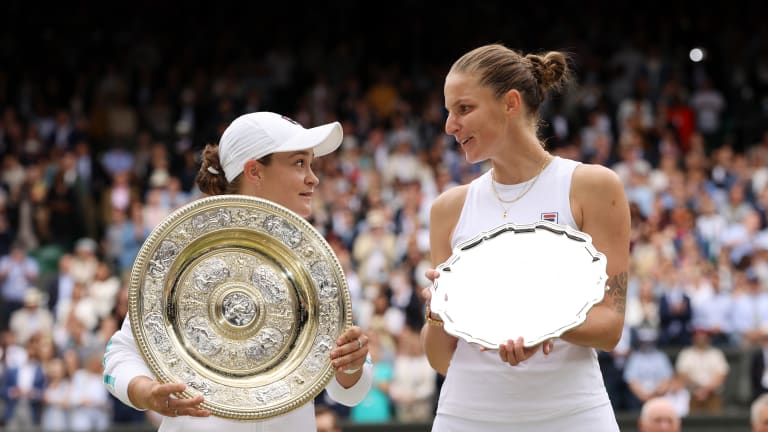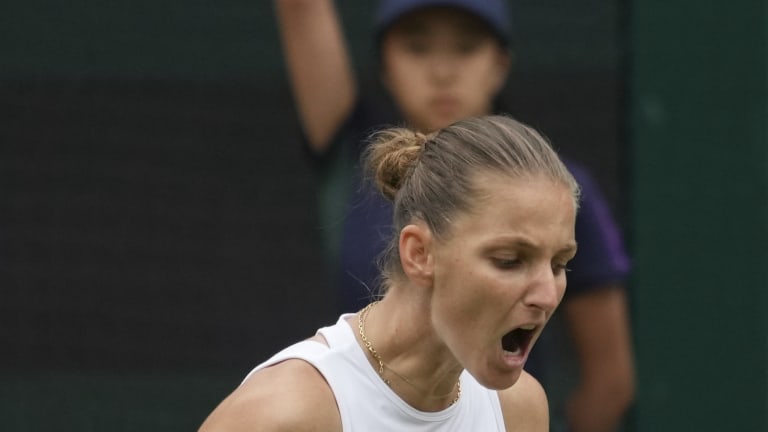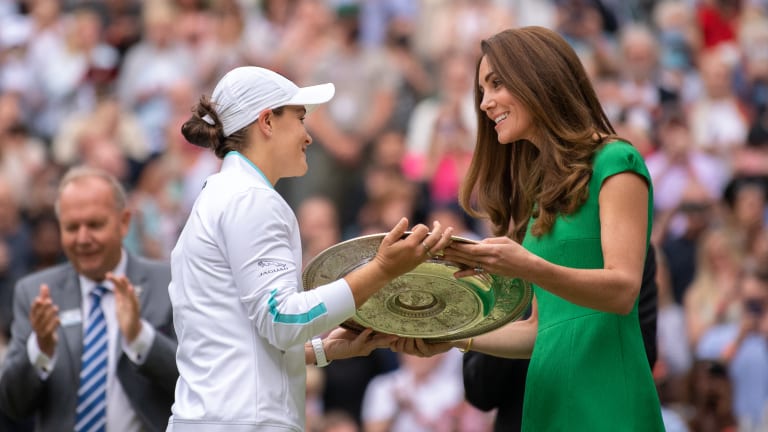Wimbledon
Pliskova had a hard time playing; Barty had a hard time closing. In the end—in a match to remember—Ash won Wimbledon
By Jul 10, 2021Wimbledon
The battle for No. 1 & more: Four WTA takeaways from the Wimbledon fortnight
By Jul 17, 2023Wimbledon
Can anyone stop Alcaraz or Djokovic? Four ATP takeaways from the Wimbledon fortnight
By Jul 17, 2023Wimbledon
Carlos Alcaraz's Wimbledon trophy keeps him at No. 1, Marketa Vondrousova's lifts her to No. 10
By Jul 17, 2023Wimbledon
Analysis: Carlos Alcaraz's Wimbledon title shows he is exactly who everyone thought he was
By Jul 17, 2023Wimbledon
Wimbledon champ Carlos Alcaraz shows us there’s no need to rein in expectations for him
By Jul 16, 2023Wimbledon
Hsieh Su-Wei and Barbora Strycova win second women's doubles title together at Wimbledon
By Jul 16, 2023Wimbledon
Novak Djokovic rues his missed chances after losing a highly entertaining Wimbledon final in five sets
By Jul 16, 2023Wimbledon
Fairytale Finish: Barbora Strycova wins last Wimbledon with Hsieh Su-Wei
By Jul 16, 2023Wimbledon
Carlos Alcaraz becomes sixth player to defeat Novak Djokovic in a Grand Slam final
By Jul 16, 2023Wimbledon
Pliskova had a hard time playing; Barty had a hard time closing. In the end—in a match to remember—Ash won Wimbledon
Both players fought off their nerves and found some of their best tennis in an entertaining, and nerve-wracking finale.
Published Jul 10, 2021
Advertising
Advertising

Both Barty and Pliskova had their moments of excellence and struggle on Saturday.
© Getty Images
Advertising

Pliskova’s defeat was not unlike her loss in her only other Grand Slam final, to Angelique Kerber at the 2016 US Open.
© Copyright 2021 The Associated Press. All rights reserved
Advertising

A royal handoff: Barty received the Venus Rosewater Dish from Catherine, Duchess of Cambridge.
© FREE FOR EDITORIAL USE. This image is offered licence free for editorial use only by the AELTC. It can be published on all platforms and can be archived. Copyright of All England Lawn Tennis Club. Commercial use is prohibited. ©AELTC/Ben Solomon